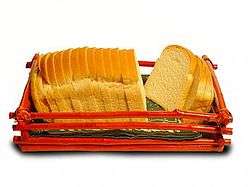brood
English
Etymology
From Middle English brood, brod, from Old English brōd (“brood; foetus; breeding, hatching”), from Proto-Germanic *brōduz (“heat, breeding”), from Proto-Indo-European *bʰreh₁- (“breath, mist, vapour, steam”).
Pronunciation
- enPR: bro͞od, IPA(key): /bɹuːd/
Audio (US) (file) - Homophones: brewed
- Rhymes: -uːd
Noun
brood (countable and uncountable, plural broods)
- The young of certain animals, especially a group of young birds or fowl hatched at one time by the same mother.
- Bible, Luke xiii. 34
- As a hen doth gather her brood under her wings.
- Bible, Luke xiii. 34
- (uncountable) The young of any egg-laying creature, especially if produced at the same time.
- (countable, uncountable) The eggs and larvae of social insects such as bees, ants and some wasps, especially when gathered together in special brood chambers or combs within the colony.
- (countable, uncountable) The children in one family; offspring.
- c. 1610-11, William Shakespeare, The Tempest, Act III scene ii:
- Ay, lord, she will become thy bed, I warrant, / And bring thee forth brave brood.
- c. 1610-11, William Shakespeare, The Tempest, Act III scene ii:
- That which is bred or produced; breed; species.
- 1598, George Chapman translation of Homer's Iliad, Book 2:
- […] flocks of the airy brood,
- Cranes, geese or long-neck'd swans, here, there, proud of their pinions fly […]
- 1609, William Shakespeare, Sonnet 19:
- Devouring Time, blunt thou the lion's paws,
- And make the earth devour her own sweet brood […]
- 1598, George Chapman translation of Homer's Iliad, Book 2:
- Parentage.
- (mining) Heavy waste in tin and copper ores.
Derived terms
Derived terms
Translations
the young of certain animals
the young of any egg-laying creature
the children in one family
- The translations below need to be checked and inserted above into the appropriate translation tables, removing any numbers. Numbers do not necessarily match those in definitions. See instructions at Wiktionary:Entry layout#Translations.
Adjective
brood (not comparable)
Verb
brood (third-person singular simple present broods, present participle brooding, simple past and past participle brooded)
- (transitive) To keep an egg warm to make it hatch.
- In some species of birds, both the mother and father brood the eggs.
- (transitive) To protect (something that is gradually maturing); to foster.
- Under the rock was a midshipman fish, brooding a mass of eggs.
- (intransitive) To dwell upon moodily and at length (with adpositions generally being either about or over)
- He sat brooding about the upcoming battle, fearing the outcome.
- Nathaniel Hawthorne
- Brooding over all these matters, the mother felt like one who has evoked a spirit.
- Tennyson
- when with downcast eyes we muse and brood
- 1925, F[rancis] Scott Fitzgerald, chapter IX, in The Great Gatsby, New York, N.Y.: Charles Scribner’s Sons, OCLC 884653065; republished New York, N.Y.: Charles Scribner’s Sons, 1953, →ISBN:
- And as I sat there brooding on the old, unknown world, I thought of Gatsby’s wonder when he first picked out the green light at the end of Daisy’s dock. He had come a long way to this blue lawn and his dream must have seemed so close that he could hardly fail to grasp it.
- (intransitive) To be bred.
Translations
to keep an egg warm
|
to protect
to dwell upon moodily and at length
Further reading

Afrikaans
Pronunciation
- IPA(key): /brʊət/
Dutch
Etymology
From Middle Dutch brôot, from Old Dutch *brōd, from Proto-Germanic *braudą.
Pronunciation
- Rhymes: -oːt
- IPA(key): /broːt/
audio (file)
Noun

Gesneden wittebrood
Sliced white bread
Sliced white bread
brood n (plural broden, diminutive broodje n)
- bread
- (by extension) Similar bakery product or other baked dish
- (metonymically) livelihood, especially in expressions like dagelijks brood
Derived terms
- afbakbrood
- apostelbrood
- bakkersbrood
- bodenbrood
- broodbakken
- broodbakmachine
- broodbeleg
- broodbelegsel
- broodbus
- brooddoos
- broodfabriek
- broodgist
- broodhaan
- broodkorf
- broodmager
- broodmand
- broodroof
- broodrooster
- broodschrijfster
- broodschrijver
- broodwinner
- broodwinning
- casinobrood
- desembrood
- eekhoorntjesbrood
- fabrieksbrood
- gerstebrood
- gistbrood
- johannesbrood
- kaiserbroodje
- knäckebrood
- koekebrood
- krentenbrood
- maanzaadbrood
- mierenbroodje
- platte broodjes bakken
- roggebrood
- rozijnenbrood
- sesambrood
- speltbrood
- stokbrood
- suikerbrood
- tarwebrood
- vleesbrood
- wittebrood
- zoete broodjes bakken
- zuurdesembrood
Middle English
Etymology
From Old English brād.
This article is issued from
Wiktionary.
The text is licensed under Creative
Commons - Attribution - Sharealike.
Additional terms may apply for the media files.